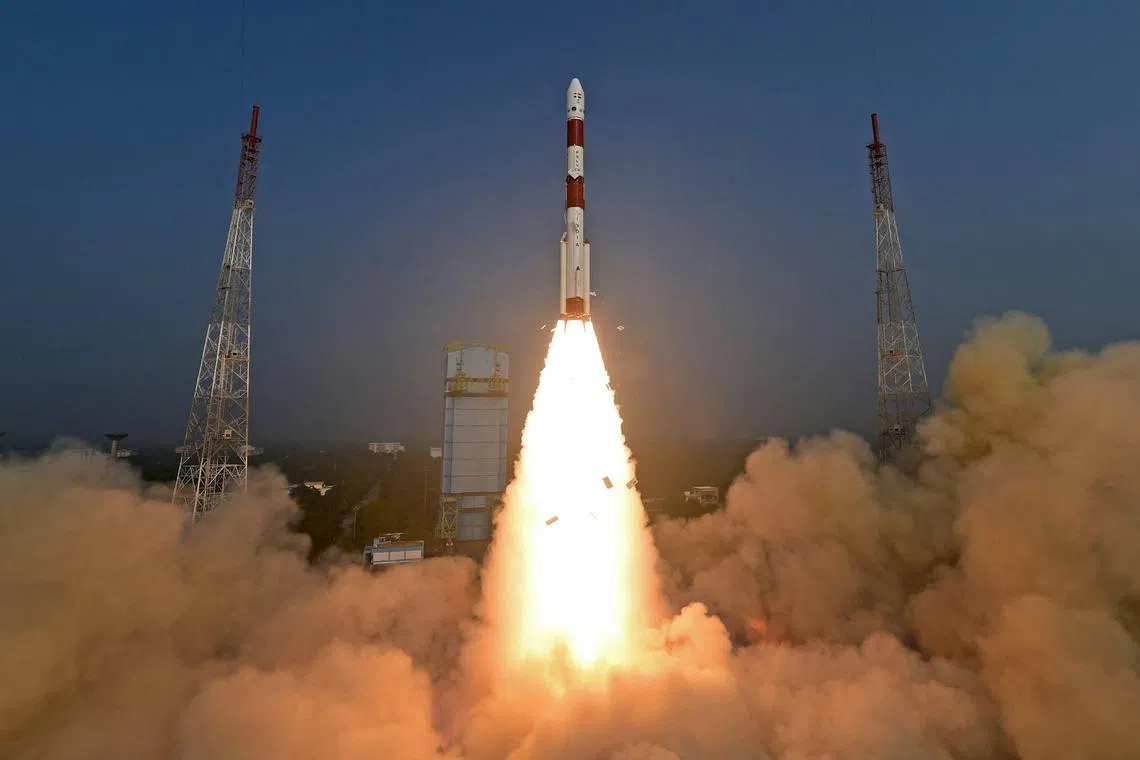India to study black holes with first satellite launch after US
Sign up now: Get insights on Asia's fast-moving developments

The PSLV-C58 rocket carrying the X-ray Polarimeter Satellite is launched from the Satish Dhawan Space Centre in Sriharikota.
PHOTO: AFP
Follow topic:
NEW DELHI - India launched its first satellite to study black holes on Jan 1, as it seeks to deepen its space exploration efforts ahead of an ambitious crewed mission in 2025.
The spacecraft, named X-ray Polarimeter Satellite, was propelled into an orbit of 350km from an island near India’s main spaceport of Sriharikota, off the southern state of Andhra Pradesh, according to Dr S. Somanath, chairman of the Indian Space Research Organisation (Isro).
The satellite, weighing about 470kg, will carry out research on X-rays emanating from around 50 celestial objects with the help of two systems built by Isro and a Bengaluru-based research institute.
The United States’ National Aeronautics and Space Administration (Nasa) launched a similar mission, the Imaging X-ray Polarimetry Explorer, in 2021 to answer questions such as why black holes spin, and build on the findings of its flagship telescope Chandra X-ray Observatory, which blasted off more than two decades ago.
China’s National Space Administration launched the country’s first X-ray space telescope to observe black holes, pulsars and gamma-ray bursts in 2017.
India’s upcoming projects include its first launch of astronauts on a crewed mission, named Gaganyaan, scheduled for 2025.
After a successful spacecraft landing near the lunar south pole
Nasa administrator Bill Nelson visited India in November 2023 ahead of a joint US-Indian earth-observing mission scheduled for launch in 2024. BLOOMBERG

